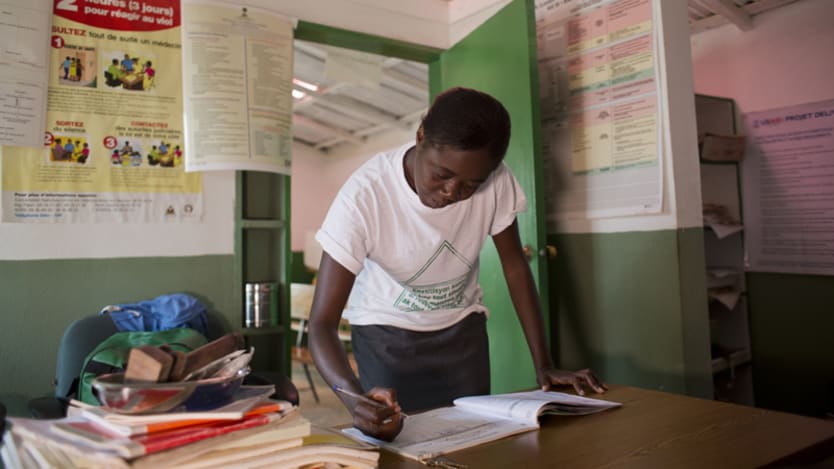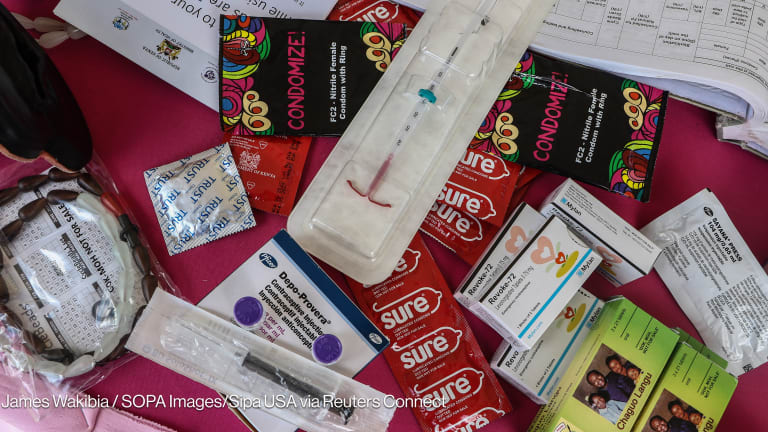
This week I head to London to participate in the 2017 Family Planning Summit. This event brings together global leaders in family planning, health and donors — and a few unlikely suspects, like me.
At first glance, the links between nutrition and family planning might not be obvious. When I worked at the National Institute for Perinatology in Mexico, they quickly became apparent. I saw first hand the devastating impact of poor nutrition and a lack of family planning on health outcomes for adolescent girls in particular. As a result, I became convinced more than ever of the need not only to advance nutrition for women and girls, but of the interdependence of sexual and reproductive health and nutrition.
Here are three reasons why integrating nutrition in family planning is a game changer.
1. Adolescent girls have urgent, unmet family planning and nutrition needs
Women and girls are twice as likely to suffer from malnutrition as men and boys and adolescent girls are most at risk. Despite adolescence being a time of rapid physical, mental and emotional change, adolescent girls are the most neglected in terms of nutrition and family planning interventions. In fact, pregnancy and childbirth are some of the leading causes of death for young women aged 15 to 19.
The costs of inaction on adolescent nutrition and sexual and reproductive health are staggering. Malnutrition during pregnancy, especially high-risk adolescent pregnancies can lead to low birthweight and stunting, and increase the risk of death for both mothers and newborns. Anaemia impacts 300 million adolescent girls and is one of the most off-track global health targets, despite the fact that we know iron and folic acid reduce anaemia and disability. Anaemia is also the number one cause of disability-adjusted life years in adolescent girls, reducing the ability of girls and women to grow, learn, earn and lead and posing significant barriers to gender equality and the empowerment of women and girls.
Likewise, lack of access to family planning can have a major impact on nutrition and well-being by: increasing the risk of HIV and sexually transmitted infections, which may deplete the nutritional status of pregnant women and their children; threatening gender equality by reducing the chances for girls and women to complete their education, secure employment and participate fully in society; and reducing economic growth as a result of diminished female labor participation, innovation and earnings, and increased health care costs.
2. Integrating family planning and nutrition increases reach and impact
Despite the fact that this generation of adolescents is the largest in human history, most existing systems in developing countries are still geared toward the needs of young children and adults.
Investments need to be made to better reach adolescents. The best way for these investments to maximize reach and impact is through delivery platforms that integrate health services holistically, without significant additional costs or complexity.
By bringing together services that were previously largely separate, each can be strengthened and the benefits for the health and well-being of adolescents will be multiplied. By doing so, we can increase the health, education and earning potential of millions.
Greater collaboration can help break down barriers that prevent women and girls from realizing their right to family planning and nutrition — which is critical to addressing gender equality, global poverty and economic empowerment.
3. Nutrition and family planning interventions are mutually reinforcing
Integrating nutrition and family planning not only makes sense from a delivery efficiency perspective, but doing so drives mutually reinforcing health outcomes as well. By integrating nutrition into family planning programs, we can achieve healthier pregnancies and birth outcomes, and reduced rates of stunting, wasting, and child, infant and maternal mortality. We can reduce rates of adolescent pregnancy and the significant health risks posed to both mother and child, in addition to the long-term impacts of early pregnancy. In addition, family planning programs increase awareness and capacity for birth spacing, providing a critical window for mothers to rebuild their depleted nutritional status and have healthier, safer pregnancies.
So while at first glance, my participation with Nutrition International at the 2017 Family Planning Summit might seem a bit unexpected, the possibilities for both adolescent sexual and reproductive health and nutrition through greater integration and collaboration are immense.
A clear demonstration of such collaboration is a new partnership between Nutrition International and U.N. Population Fund, which will integrate nutrition counseling, education, and iron and folic acid supplements for adolescent girls and women into family planning and maternal health programs. Through innovative approaches to better reach adolescent girls, this partnership will reach 500,000 women and girls in Nigeria and Senegal in its first phase with the potential to scale up to 15 million women and girls annually.
We are at a crossroads. It’s time for concerted global action to build the political will, technical capacity, and policies and resources to scale up family planning and nutrition to meet the needs and rights of adolescent girls. When we all work together to realize our collective goals and objectives, a more just and prosperous world is possible.
Update, July 11, 2017: This article has been updated to clarify the statistics about the effect of anemia on adolescents, and about pregnancy and childbirth.
Read more international development news online, and subscribe to The Development Newswire to receive the latest from the world’s leading donors and decision-makers — emailed to you free every business day.
Read more about the Family Planning Summit:
► 5 topics to watch at the London Family Planning Summit
► Uganda's lessons for Family Planning Summit
► Will a new campaign convince Australia to step up at the Family Planning Summit?








